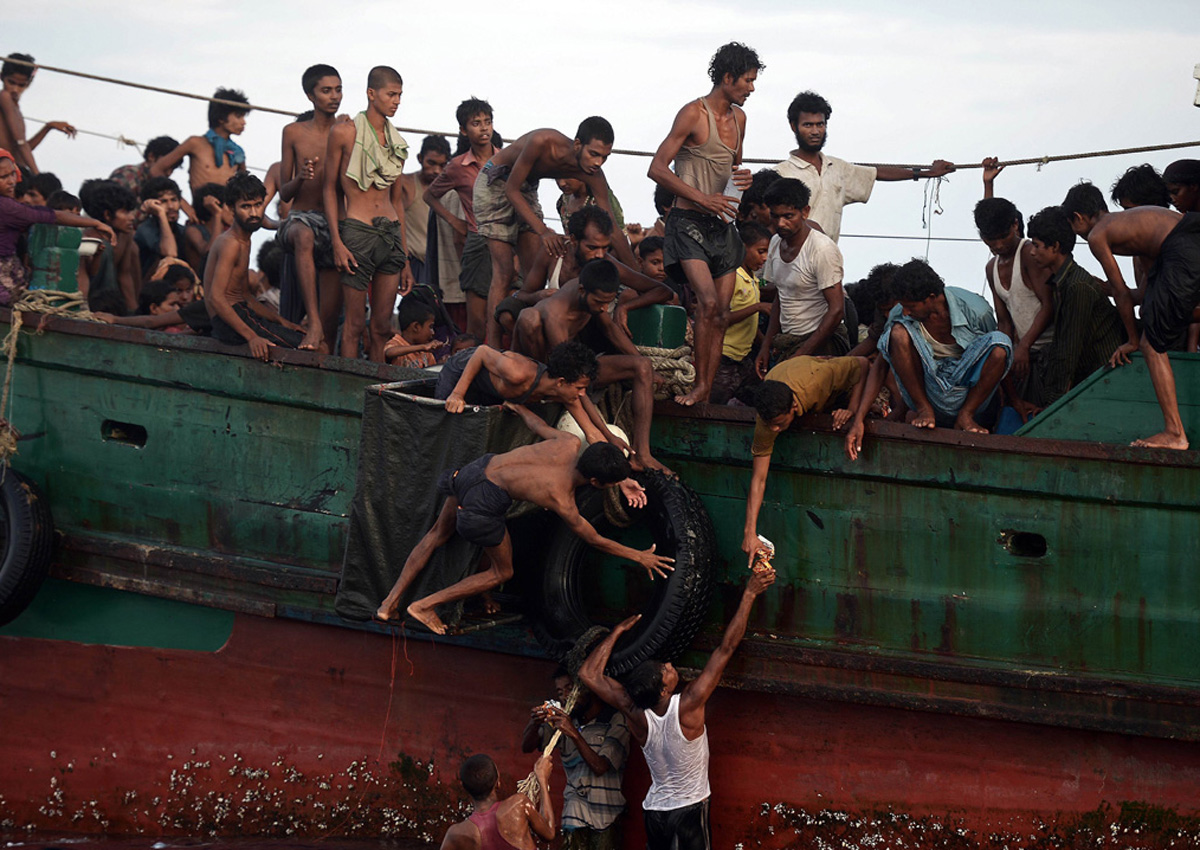BANGKOK – Hope that the conditions will improve for the Rohingya Muslim minority in Myanmar under Aung San Suu Kyi’s new government has contributed to a slowdown in the number fleeing to Thailand and beyond, the United Nations and European Union said on Monday.
As the season that smuggling and trafficking ships typically ply their human cargoes across the Bay of Bengal comes to a close, the number of migrants leaving Myanmar is down sharply on the year, the UN refugee agency said on Monday.
“It is striking, there are many less people coming than last year,” Volker Turk, assistant high commissioner for protection at the UNHCR, told Reuters after an event on refugees in Bangkok. “It’s a combination of factors. As well as the new government, there are stronger activities against smuggling and trafficking. And the discovery of the mass graves last year also shocked people.”
Thai police launched a campaign in May 2015 following the discovery of 30 bodies in graves near a human-trafficking camp close to the Malaysian border. The crackdown led criminals to abandon ships at sea with thousands of migrants aboard.
Mass graves of suspected human-trafficking victims were also found on the Malaysian side of the border.
Thai and Bangladeshi crackdowns on human smugglers have also disrupted the networks that brought migrants from Myanmar and Bangladesh by sea to Thailand and Malaysia.
Many of the migrants are Rohingya, fleeing poverty and persecution in Rakhine state in western Myanmar after religious violence between Buddhists and Muslims there in 2012.
Suu Kyi’s National League for Democracy (NLD) is forming a government that will take power on April 1. She and the NLD have been criticised for saying little about how they will address the Rohingya’s situation in Rakhine State where about 140,000 people remain in camps.
The flow of migrants and refugees to Thailand from areas of conflict in other parts of Myanmar has also decreased as people hope for improvements under the NLD government, said the European Union’s Ambassador to Thailand Jesus Sanz. “The positive change in Myanmar is the main cause for the reduction in numbers,” Sanz told Reuters. “It remains to be seen how quickly the government of Myanmar will be able to stabilise the situation there and give real opportunities to these people.”
The EU helps finance camps in Thailand near the border with Myanmar that hold more than 100,000 refugees.
The United Nations hoped political change in Myanmar would allow those refugees, some of whom have lived in Thailand for decades, to go home. “I hope that voluntary repatriation will be a possibility in a year or two,” Volker said.


































































